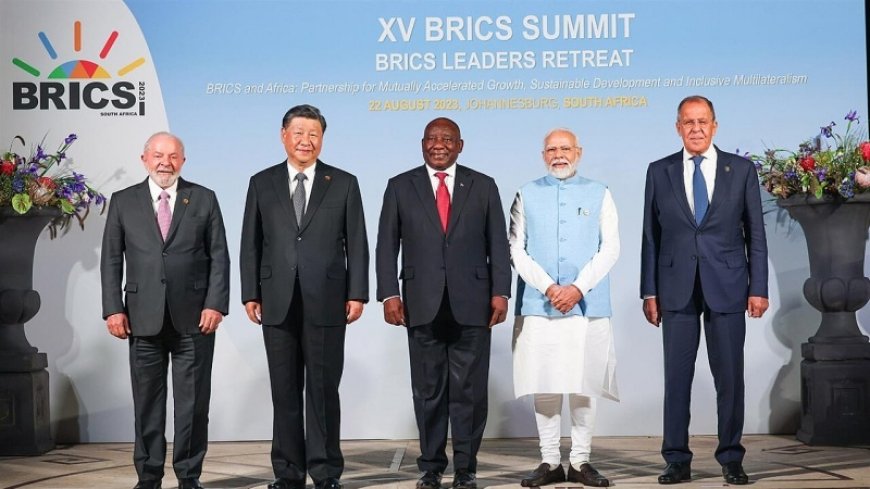Entry of Iran, Argentina, United Arab Emirates, Saudi Arabia, Ethiopia and Egypt in BRICS
Entry of Iran, Argentina, United Arab Emirates, Saudi Arabia, Ethiopia and Egypt in BRICS

During the BRICS summit in Johannesburg, South Africa, South Africa's foreign minister has said that the basic principles for admitting new members to the grouping have been agreed upon. BRICS so far included Brazil, Russia, India, China and South Africa, but now Argentina, Iran, United Arab Emirates, Saudi Arabia, Ethiopia and Egypt have also been invited to this group. This time, even before the BRICS summit, it was believed that there would be a significant focus on the expansion of the group in the conference. Chinese President Xi Jinping also welcomed its expansion at the three-day BRICS meeting and confirmed that 20 countries have already applied for membership and many more are welcome to join the grouping for their own development. . Addressing the BRICS summit via video conferencing, Russian President Vladimir Putin also discussed at length the expansion of the grouping and welcomed the new members. He thanked South African President Cyril Ramaphosa for hosting the summit and expanding the grouping beyond the existing five countries. The six new countries in the BRICS grouping will be Argentina, Iran, United Arab Emirates, Saudi Arabia, Ethiopia and Egypt. These countries will become members of the BRICS group from January 1, 2024.
Indian Prime Minister Narendra Modi also welcomed the new member states during the BRICS summit. This is such an organization, which is currently in the highest demand in the world. At least 40 countries have expressed interest in joining the group, from Algeria to Argentina. The main reason for the increasing attractiveness of this group is its growing economic power. The combined gross domestic product (GDP) of the five BRICS countries is now more than the G-7. BRICS countries account for 26 percent of global GDP. Despite this, they have only 15 percent voting power in the International Monetary Fund (IMF). In this context, Iran says that the BRICS grouping has managed to bring together independent countries with the common goal of economic cooperation and countering unilateralism and no doubt, it is one of the emerging forces. Experts believe that there is a possibility of increasing dominance of BRICS countries in the world in future. This could lead to further tensions between Russia and China with the West, as the leaders of the grouping seek an independent path in a changing world. But to remain effective, BRICS will need to manage the divergent priorities among its member states.













































